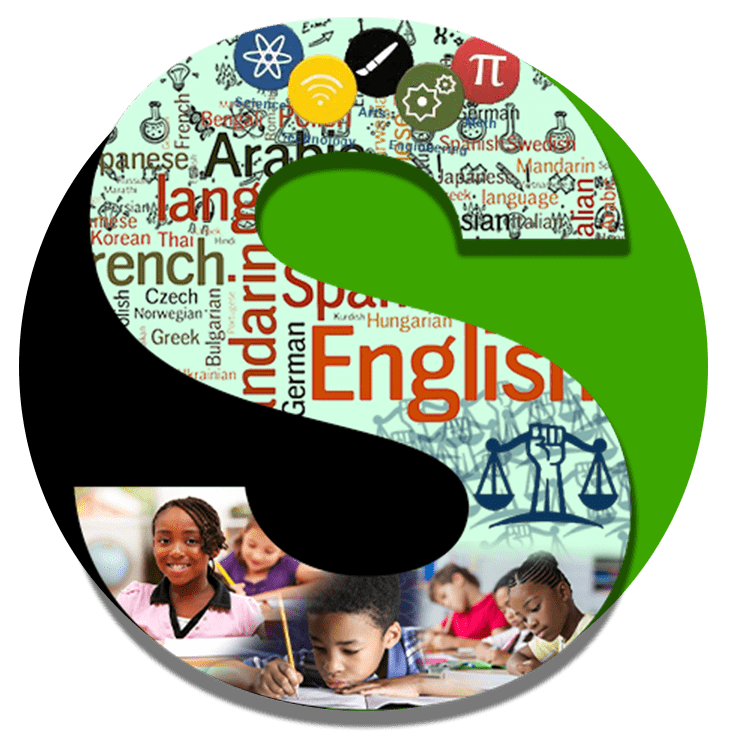As we stand on the cusp of the Artificial Intelligence (AI) era, we must reevaluate our perception of language learning! No longer can we view the ability to speak multiple languages as a mere academic achievement or a résumé booster; instead, it is, at its core, a birthright, especially for our historically and educationally underserved Black and Indigenous People of Color (BIPOC).
Language: An Innate Human Right and a Matter of Sociolinguistic & Raciolinguistic Justice!
It is imperative to reframe language learning for what it truly is: biologically, we are wired for it. Socially, it is our right! And racially, there is no difference in the ability to learn languages. Research, often highlighted in a myriad of scientific and professional publications, including those underscored in publications by the American Council on the Teaching of Foreign Languages (ACTFL), emphasize the significance of early childhood language exposure for all children. Jean Piaget, Erik Erickson, Noam Chomsky, Helena Curtain, Carol Dahlberg, and Stephen Krashen, among other luminaries in the fields of language acquisition and neuroscience, concur that our brains are primed for multilingualism from birth. To deny a child, particularly our BIPOC children, the opportunity to harness this inherent capacity is to deny them a facet of their humanity and to perpetuate systems of inequity. Sociolinguistic and Raciolinguistic Justice is not just about ensuring that all can communicate; it’s more importantly about ensuring that our present and future generations of children can adequately communicate, collaborate, and negotiate ideas and meaning, with the rest of humanity, both within and beyond their global neighborhoods, and regardless of the color of their skin.
The Early Start: Crucial for All Children
Starting language education in preschool or kindergarten is not a luxury—it’s a necessity! For our BIPOC children, in particular, early access to language education bridges social, economic, and ethno-racial gaps, providing them with advantages previously reserved for the privileged few in historically dominant racial and ethnic groups. The implications? Better academic outcomes, broader worldviews, greater social capital, and a direct challenge to systems that have far too long perpetuated inequality and inequity in every aspect of life and living within the United States.
Benefits Beyond Communication
The advantages of bilingualism and multilingualism stretch far beyond mere communication. Personal benefits include cognitive flexibility, greater creativity, enhanced problem-solving skills, both academically (in math & science) and vocationally/professionally, as well as even the delayed onset of cognitive aging and cognitive decline. Societally, multilingual individuals foster cross-cultural understanding, promoting peace and collaboration. Moreover, a wealth of studies showcases the long-term educational, socioeconomic, and health benefits. The journey to becoming multilingual doesn’t merely shape the mind—it shapes life!
Embracing and Leveraging Artificial Intelligence for Language Teaching and Learning
The AI era brings forth a silver lining: a chance to enhance language learning, for all children, in unprecedented ways. Leveraging AI’s recent gains promises methods previously deemed impossible or inefficient. AI-driven tools offer personalized, targeted, interactive, and adaptive learning experiences, ensuring that each child’s unique needs are met, making multilingual education accessible to all, anywhere and anytime.
In Conclusion
Language is not just a tool; it’s a birthright, a societal pillar of equity and justice, and a pathway to unparalleled personal and societal growth! As we embrace the AI Revolution, we must prioritize early language education, especially for our historically and educationally underserved Black and Indigenous Children of Color. The future beckons us to act now! To invest in language learning is to invest in the very fabric of our shared humanity. The biology in our brain tells us who we are linguistically destined to be(come): multilingual people with value, purpose, and truth! This is our impetus for resistance against every lie, deception, injustice, and inequity we encounter so that we can boldly declare the truth of the matter: we were born to be multilingual, to embrace, explore, understand, and enjoy our humanity, more fully and more deeply, in the world we collectively share! We have the knowledge, the means, and the imperative. The question then remains: will we rise to the challenge to ensure that every child in America has equitable access to acquiring multiple languages?
“Multilingualism Matters, Always Has, and Always Will!”
Richard de Meij, August 14, 2023
Richard de Meij is known for his extensive language expertise and his contributions to language education. After completing his studies at Colegio Arubano, the University of Florida, the University of Utrecht, and Central CT State University, he obtained degrees in Speech-Language Pathology and Applied Linguistics. As a speech-language pathologist, he has become a noted applied linguist with decades of experience as a world language educator.
Recognizing his exceptional teaching skills, he was awarded the 2019 Connecticut Language Teacher of the Year award. Richard is fluent in Dutch, Papiamento, English, Spanish, and Portuguese. He has explored other languages such as Italian, Japanese, (modern) Greek, Bulgarian, Tagalog, Afrikaans, Polish, and “Mainah,” showing a natural tendency towards language learning and multiculturalism.
Besides his impressive linguistic achievements, Richard is also an entrepreneur, founder & webmaster of Celebrate Languages, www.celebratelanguages.com website, which has become a great resource for language enthusiasts worldwide. Richard continues to challenge himself and expand his language portfolio by currently studying Arabic (Egyptian MSA).

